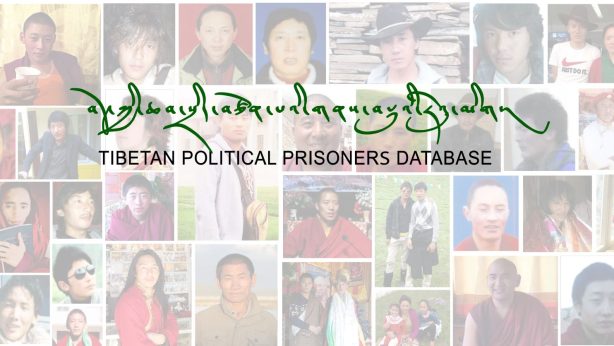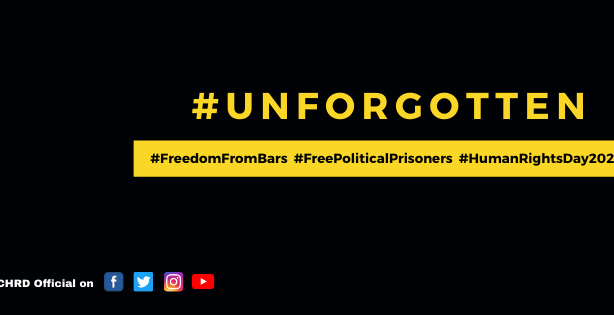TCHRD Statement on International Human Rights Day 2018
“We will not enjoy security without development, we will not enjoy development without security, and we will not enjoy either without respect for human rights.”
~ Kofi Annan, Former Secretary-General of the United Nations
Today is the 70th anniversary of the adoption of the Universal Declaration of Human Rights (UDHR), a landmark document in the history of human rights that guarantees for all human beings the civil, economic, political and cultural rights that are universal, inalienable, indivisible, interdependent and interrelated.
As the UDHR turns 70, there still remain pressing challenges and threats to the protection, promotion and fulfilment of human rights for all. In many parts of the world, we are witnessing strong backlashes against human rights, growing reprisals against human rights defenders, and the ever-shrinking space for civil society actors. Powerful countries such as China are gaining ground in redefining human rights, as was seen recently when the one-party dictatorship led a successful campaign at the UN to make ‘development’ the most important of all human rights and the precondition for the enjoyment of all other human rights.
In Tibet, China continues to ignore human rights guarantees it is bound by international law to protect. Tibetans are still subjected to systematic political repression, crimes against humanity and other human rights abuses. China’s security state in Tibet ensures the persistent violation of basic human rights and the entrenchment of a culture of impunity for human rights violators. An array of policies and practices are implemented to annihilate all aspects of Tibetan national identity in violation of the Chinese Constitution and the Regional National Autonomy Law. Despite China’s ideological prioritisation of the right to development over other human rights, the right to development has never been implemented in Tibet except in the mining sector.
In recent years, under Xi Jinping’s autocratic leadership, government surveillance has penetrated deep into the lives of Tibetans making it impossible for Tibetans to behave and express themselves freely. New laws and regulations are used to justify violations of the right to freedom of religion and belief, freedom of expression, freedom of assembly and association, freedom of movement, cultural rights and the right to privacy. Under the guise of safeguarding and protecting ‘state security’, Chinese authorities have relentlessly persecuted and imprisoned thousands of Tibetans for peacefully protesting and exercising their rights. The political prisoners database of Tibetan Centre for Human Rights and Democracy (TCHRD) contains information on 5107 known Tibetan political prisoners majority of whom were charged of ‘endangering state security’ with no legal basis.
In light of the deep-rooted human rights challenges posed by authoritarian regimes like China, there is a pressing need for democratic countries, civil society actors and human rights defenders in the international community to join forces to counter the ominous assault on the international human rights regime and the liberal world order. In their foreign policy dealings with China, democratic states should prioritise human rights principles over temporary trade interests and call China out for using the human rights regime merely for diplomatic and strategic gains. The growing influence of authoritarian China on the international stage and its diplomatic manoeuvrings at the UN including providing support to abusive regimes have dangerous repercussions worldwide that threatens the very principles on which the UN was founded.
The UN’s yearlong campaign to promote the principles of UDHR not only provides us with the opportunity to highlight the relevance and value of this historic document but also to reaffirm our faith and resolve in making this document a reality for the whole humanity. Joining forces with the UN, TCHRD unveiled a new website on UDHR in Tibetan language on 30 November 2018 to raise awareness on UDHR in the Tibetan-speaking world as well as to honour and recognise the valuable sacrifices made by Tibetan monks in the Tibetan capital Lhasa 30 years ago to disseminate the Tibetan translation of UDHR for which they were tortured and imprisoned to lengthy prison terms.
To highlight the significance of the 70th Human Rights Day, TCHRD released today an online database that contains verified and updated information on Tibetan political prisoners. This online resource is aimed at monitoring and documenting human rights violations committed by Chinese authorities in Tibet and to provide useful resources not only for human rights activists and campaigners in their advocacy work but also for researchers, media persons, and policy makers interested in learning more about the situation of Tibetan political prisoners.
The English translation of the report titled Tibetan Literature: In the Web of Censorship and Discrimination that reveals the various censorship and discriminatory policies and practices imposed on wide ranging areas of literary works in Tibet was released today. The original Tibetan version was released on the Day of Imprisoned Writers on 15 November 2018.


